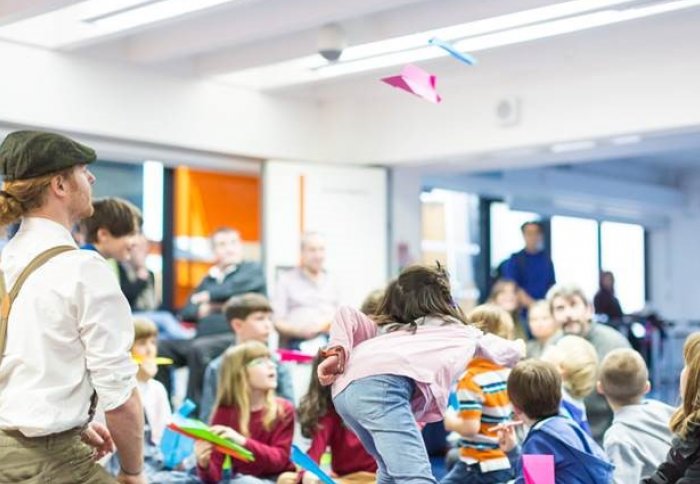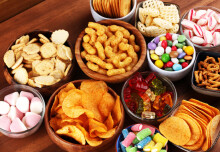

British Science Week 2016: Imperial's MSc Science Communication students at the Museum of London.
As part of British Science Week 2016, the Museum of London asked Imperial’s MSc Science Communication students to develop and deliver activities for a Family Learning Festival.
The students’ brief was to come up with activities that would bring the science behind London to life - and at the same time be engaging for families. Scientific areas as diverse as bridge building, aerospace engineering, ecology and healthcare were brought to the fore, with families asked to make, smell, discuss, try on and explore.

Children feel closer to Science
3000 families attended during the weekend – and they had plenty of choice of activity. Some tried on plague doctors’ masks and investigated how effective medieval healthcare was. Some investigated what the plague would have looked like to modern scientists. Some found out how different materials survive in the Thames, and what lives there. Yet others followed a series of clues to track down the cause of a cholera outbreak. Construction activities ranged from bridge building to paper planes, with families discovering what can be learned from aerospace engineering about the perfect paper plane design.
The student group enjoyed the creativity and curiosity of children in response to their activities, and noted the many and varied dynamics of family groups. One student commented that it was remarkable how much quite young children knew already about certain science topics – in particular, there seem to be a lot of experts on the plague who are under the age of ten!
London’s history is rich and varied, and it would be easy to forget how science runs through almost every part of it. This collaboration was a very enjoyable way to remember, and discover, some of this science. Visitors commented that as a result of it, ‘Children feel closer to science’ and that it was ‘Good to see crossing over science and history’. As one visitor said: ‘I personally love science, but today has been eye-opening to what science involves’.
Photographs credited to Museum of London.
Article text (excluding photos or graphics) available under an Attribution-NonCommercial-ShareAlike Creative Commons license.
Photos and graphics subject to third party copyright used with permission or © Imperial College London.
Reporter
Ms Jackie Twitchett
Centre for Languages, Culture and Communication


